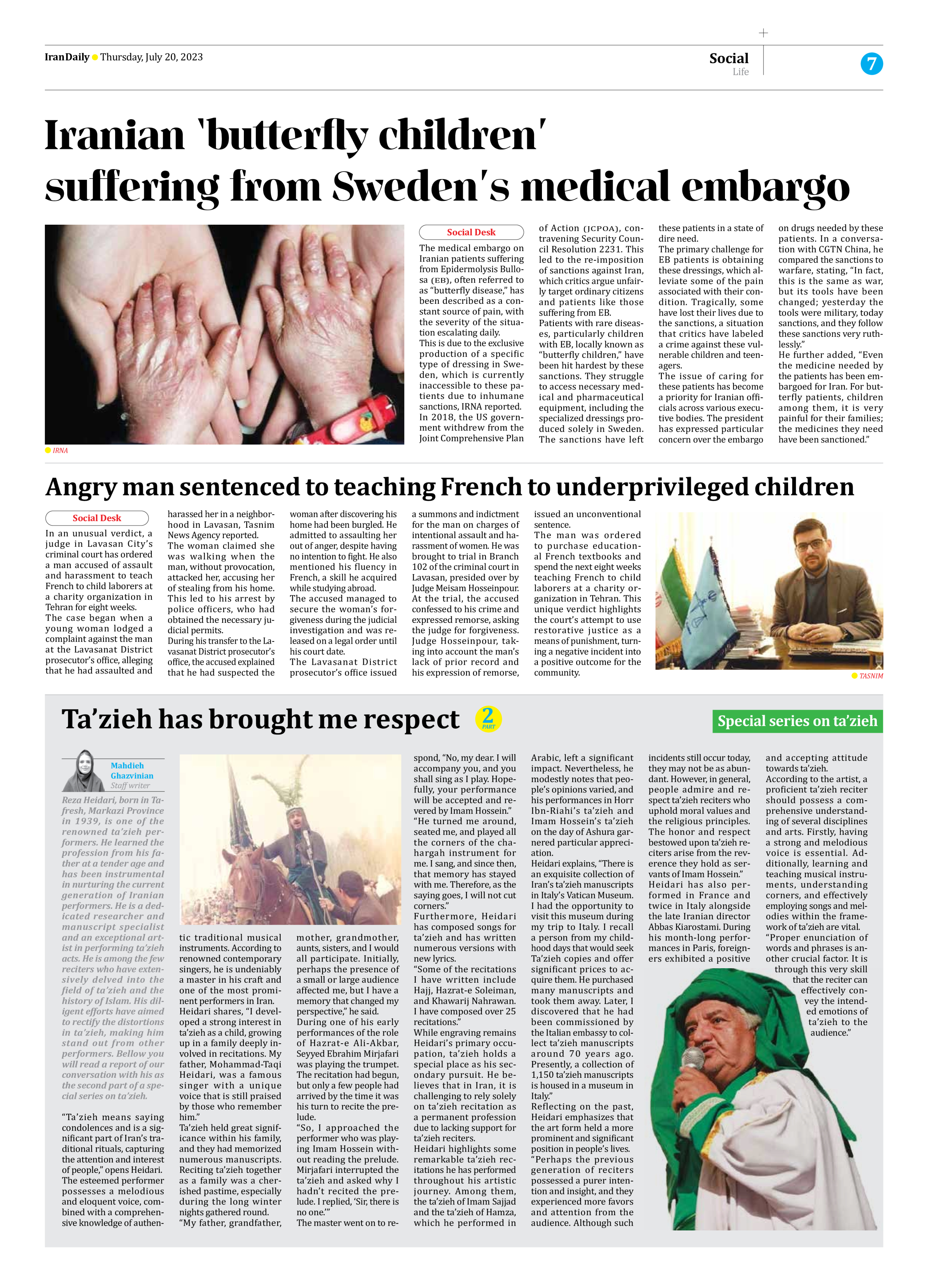
Angry man sentenced to teaching French to underprivileged children
In an unusual verdict, a judge in Lavasan City’s criminal court has ordered a man accused of assault and harassment to teach French to child laborers at a charity organization in Tehran for eight weeks.
The case began when a young woman lodged a complaint against the man at the Lavasanat District prosecutor’s office, alleging that he had assaulted and harassed her in a neighborhood in Lavasan, Tasnim News Agency reported.
The woman claimed she was walking when the man, without provocation, attacked her, accusing her of stealing from his home. This led to his arrest by police officers, who had obtained the necessary judicial permits.
During his transfer to the Lavasanat District prosecutor’s office, the accused explained that he had suspected the woman after discovering his home had been burgled. He admitted to assaulting her out of anger, despite having no intention to fight. He also mentioned his fluency in French, a skill he acquired while studying abroad.
The accused managed to secure the woman’s forgiveness during the judicial investigation and was released on a legal order until his court date.
The Lavasanat District prosecutor’s office issued a summons and indictment for the man on charges of intentional assault and harassment of women. He was brought to trial in Branch 102 of the criminal court in Lavasan, presided over by Judge Meisam Hosseinpour.
At the trial, the accused confessed to his crime and expressed remorse, asking the judge for forgiveness. Judge Hosseinpour, taking into account the man’s lack of prior record and his expression of remorse, issued an unconventional sentence.
The man was ordered to purchase educational French textbooks and spend the next eight weeks teaching French to child laborers at a charity organization in Tehran. This unique verdict highlights the court’s attempt to use restorative justice as a means of punishment, turning a negative incident into a positive outcome for the community.







